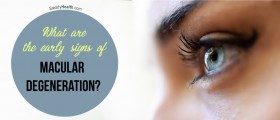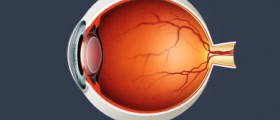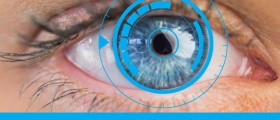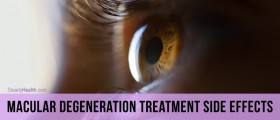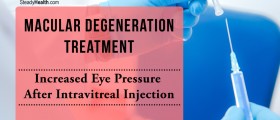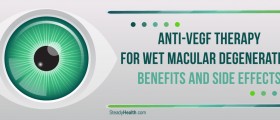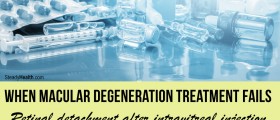Hello there guys. I am really worried about my health. For the last couple of days, my vision is not clear. It is blurred, I see some bubbles and some dark, black spots as well - sometimes in the middle, sometimes in the corner. I believed that this is because of the stress, but then I found an information that there are chances that this is a macular degeneration, which really made me really concerned. Guys, I really don't want to lose my sight. I would do anything to prevent that. What to do? Please, help me, I am really scared!
Loading...
Hi there!
There are a couple of symptoms that can help you determine are you dealing with muscular degradation or something else is bothering you. For example, dry macular degeneration symptoms usually develop gradually and there is no pain. But, you can easily notice that something is wrong with you if you have a visual distortion. When I say this, I primarily think about straight lines seeming bent. Also, you may have a reduced central vision in one or both eyes. You have to react immediately, because a lot of people avoid this, believing that this is just a sign of dizziness or something similar.
Loading...
Hello everyone.
Generally, all of those symptoms are correct, but it happens that sometimes you don't have any type of symptoms at all. Generally, when it comes to dry macular degeneration, you should know that it usually affects both of your eyes. Sure, it can affect only one, but that means that you may not notice any type of changes in your vision. That happens because your good eye may compensate for the weak eye, so that is why you can't see the symptoms. But in some case, that is good, because if the condition doesn't affect side vision, so it rarely causes total blindness, which is good. But, no matter what, you should try to find the best macular degeneration treatment for you.
Loading...
Totally agree on this one. So, I don't see why people are scared to visit their doctors, it is something that you have to do, especially if you are over 50 years old and you are noticing some changes in your life. So, there are two things that are crucial: the first one is changed in your central vision and the other one is your ability to see colors and all of those fine details become impaired. If you have any of those, you should visit your doctor. These are the changes that may be the first indication of macular degeneration.
Loading...
Loading...
Yes, actually those are some signs of it, but you need to visit an ocular to see what he is going to tell you. Some of the symptoms that are really noticeable and if you have those, you should go and check it immediately. Sincerely, I believe that in your case, you don't have this issue. Those symptoms that you are going through are the classical symptoms that it is a time maybe for (new) glasses. Anyway, if you are dealing with difficulty in reading, if you are losing a fine vision, if you have a difficulty distinguishing the faces and if you have dark circles, that can be a sing. But now I think that you don't need to be worried.
Loading...
Loading...
Hi, there are so many possible reasons for this. Just because his sight is not clear anymore, like it was before, that doesn't have to mean that there is something wrong with him. Not at all. Sometimes, ages are doing itself, this is a normal procedure that happens with ages, but sure, I would recommend you to visit his doctor and let him tell you what this is. In some occasions, high blood pressure can cause this, but also, he should check his eye pressure. Maybe this is a reason for his problems. Also, doctor will do some tests to determine is the macular degeneration culprit for his current codnition.
Loading...
In general, people older than 45 years should have a complete eye examination with an eye doctor (ophthalmologist or optometrist) every one to two years to screen for age-related macular degeneration (AMD).
These are the symptoms of Macular Degeneration:
- Visual distortions, such as straight lines seeming bent
- Reduced central vision in one or both eyes
- The need for brighter light when reading or doing close work
- Increased difficulty adapting to low light levels, such as when entering a dimly lit restaurant
- Increased blurriness of printed words
- Decreased intensity or brightness of colors
Loading...


